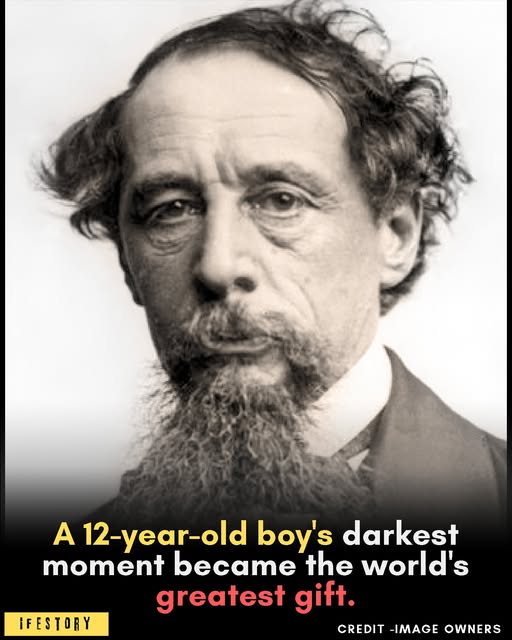
In 1824, Charles Dickens watched helplessly as his father was dragged away to Marshalsea debtors’ prison. With their family name in ruins and no money left, young Charles was pulled from school and thrust into the harsh reality of Warren’s Blacking Factory near the Thames.
For 16 hours a day, this gentle, educated child sat among rough adults, pasting labels onto bottles of shoe polish. The factory was cold, rat-infested, and reeked of industrial chemicals. His small hands grew raw from the work, but his spirit suffered more. He felt abandoned by the world—invisible, worthless, forgotten.
Most children would have been broken by such trauma. But Charles carried something different inside him: an extraordinary imagination and an unshakeable belief in human dignity. That suffering didn’t destroy him—it awakened him.
Years later, when his father was freed and Charles returned to school, he never forgot those who remained trapped in poverty’s grip. That pain became his purpose. Every novel he wrote carried the voice of the voiceless, the cry of the forgotten child, the plea for justice.
Oliver Twist wasn’t just fiction—it was Charles at age 12, asking for more. David Copperfield wasn’t just a character—it was every abandoned child Charles had seen. A Christmas Carol wasn’t just entertainment—it was a moral revolution wrapped in story.
Dickens didn’t just write books; he rewrote society’s conscience. His novels sparked real reform, shuttering workhouses, improving labor laws, and giving dignity to the poor. The boy who felt powerless became one of history’s most powerful voices for change.
Sometimes our deepest wounds become our greatest wisdom.
Sometimes the moments that break us open are the moments that let the light pour in.
That broken boy by the Thames didn’t just survive—he saved countless others through the stories only he could tell.
